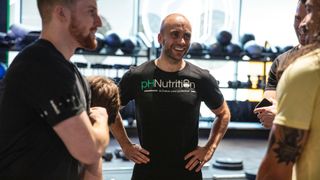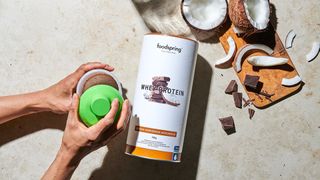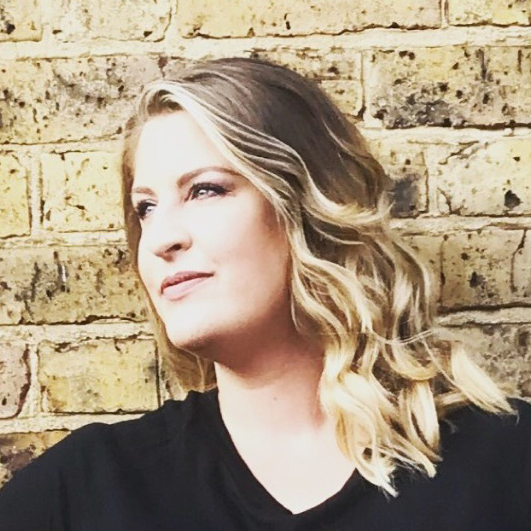If you’re trying to lose weight, you might be thinking that protein shakes are the last thing your body needs to drop a dress size. After all, protein powders are used by men to bulk up and get bigger muscles, right? Well, not quite.
There are many misconceptions about protein powders, not least that they are full of additives, contain extra calories, are bad for your health and cause weight gain. Not the best reputation for sure! However, the biggest falsehood surrounding protein powders is that they can only be used for building muscle.
And it’s this distorted belief that leads many people to mistakenly associate their use with muscle-bound bodybuilders only, meaning everyday exercisers often miss out on the myriad of benefits that protein powders provide.
Because the real purpose of protein powder is to aid muscle recovery after exercise. And better recovery from exercise, along with properly fuelled muscles, can actually support long-term weight loss and help you to become leaner over time, not bulkier. Unless you take weight gainers, a special type of protein powder with high carbohydrate content, in which case you will put on weight.
Confused? Don’t be. We asked Liam Holmes, foodspring ambassador and founder of Ph Nutrition to explain how protein powders work, what benefits you can enjoy from using them regularly, and why you should be incorporating them into your diet from your very first workout.

Liam Holmes has the answer to all your protein powder-related questions
Why Does The Body Need Protein?
Before we explain why protein powder can help with weight loss, it’s important to understand the role that protein plays in the body. Dietary protein - along with carbohydrates and fats (or lipids) - is one of the three main macronutrients the body needs to function properly, and while each of these fuel sources is vital, protein is essential for muscle recovery among other critical functions.
‘When we eat protein, it is digested and broken down into amino acids, which are used in enzyme production, immune function, muscle repair, energy regulation and detoxification, and help neurotransmitters for cognitive function, so it really is an essential macronutrient with a broad spectrum of benefits and uses,’ says Holmes.
Your body, he adds, needs 20 different amino acids (often called the building blocks of protein) to function properly, but only nine of them are classified as essential. Annoyingly, our bodies are unable to produce these nine essential amino acids, so it’s crucial that we get enough of them by eating a variety of protein-rich foods such as lean meat, dairy, eggs, nuts, fish and vegetables (e.g., edamame beans, lentils, soybeans, chickpeas etc).
Sounds easy, but the fact is many of us can struggle to eat the Recommended Daily Allowance (RDA) of protein we need to meet basic nutritional requirements, currently set at around 0.8 grams per kilo of body weight per day (more on this later). And it’s for this reason, we think, that the best protein powders are becoming increasingly popular with people who want to top up their protein intake and reap the same muscle-repairing, performance-enhancing benefits that bodybuilders have been enjoying for decades.

Can Protein Powders Help You Lose Weight?
According to Holmes, protein is essential for weight loss – especially when you want to lose the right type of weight.
‘When you’re trying to lose weight by maintaining a calorie deficit (i.e., eating fewer calories than your body expends), you want to lose fat but preserve the muscle mass you have,’ says Holmes. ‘Protein and protein powders can help maintain muscle mass when dieting and support muscle growth and repair if you’re embarking on a strength training programme, which can, in turn, improve your chances of weight loss because increased muscle mass will help to boost your metabolism at rest, meaning your body will keep burning calories long after your workout has finished.’
While one gram of protein contains only four calories - the same as carbohydrates - protein is more satiating in comparison, so it can help you to feel fuller for longer to reduce feelings of hunger and stop you from reaching for the biscuit tin so often.
Speaking of snacks, protein shakes also provide a really quick and convenient source of protein that’s easily portable and requires little prep whether you’re at home, in the office or at the gym - and they’re often cheaper than relying on whole food sources alone.
That said, protein powders should only be seen as an addition to your meals to increase protein content, and never as a meal replacement. ‘If you’re worried about the risk of gaining weight, just remember that taking on extra calories in the form of a protein shake, or any kind of food for that matter, will always result in weight gain if you have a calorie surplus,’ advises Holmes. ‘The key is to remain in a calorie deficit, although if you are maintaining your weight and you add extra calories in from protein, research shows you don’t actually gain weight.’

Coconut shavings are strictly optional
How Do I Use Protein Powder In My Diet And How Much Should I Use?
As previously stated, the current RDA of protein is around 0.8 grams per kilo of body weight per day. This, believes Holmes and many of his peers, is relatively low, and newer research suggests the RDA should really be around 1.2 to 1.4 grams per kilo of body weight per day.
‘So, if you weigh 70 kilos (around 11 stone),’ he explains, ‘you’re probably looking to consume around 90-100 grams of protein a day as a minimum. And if you’re exercising, I would recommend you up your protein intake to around 1.6 to 1.18 grams per kilo of body weight per day. Assuming you’re eating three meals a day, you should be aiming for a minimum of 20 to 25 grams of protein per meal, plus snacks to hit your protein requirements.’
Unfortunately, says Holmes, a lot of people undereat during breakfast and lunch, and these meals can tend to be carb-heavy, i.e. a little bit of chicken in a sandwich which only provides around 10 grams of protein. Equally, it can be hard to eat a lot of protein in one sitting because it is such a filling macronutrient. And this, he notes, is why protein distribution throughout the day is so important – and why protein powders can help plug the gaps.
‘People often think you only need to drink protein shakes or use protein powder after a workout,’ says Holmes. ‘But making sure you have adequate protein across the day is more important than timing it around your training sessions – don’t backload it and aim to eat protein with every single feed.’
Of course, the great thing about protein powders is they are very versatile and flexible, and they can be used during breakfast, lunch and dinner. As well as being used in shakes for a snack, you can sprinkle unflavoured powders into porridge, soups and stews or incorporate them into desserts like pancakes for a sweet treat if you didn’t get enough protein through the day.
Finally, if you are starting to introduce exercise into your lifestyle, Holmes advises that you should increase your protein intake from day one:
‘Don’t wait for a certain time during your exercise programme to introduce more protein. From the moment you start working out, your body starts to break down your muscle tissue and the need for you to provide the building blocks of protein is increased.’

Know your protein
What Kinds Of Protein Powder Are There?
Protein powders don’t have the best reputation, and that’s probably because they weren’t that great 20 years ago. ‘Back in the day, they were filled with rubbish, tasted funky and caused a lot of gastric distress,’ admits Holmes. ‘But these days, they are very good, taste great and contain basic ingredients only.’
One of the key ingredients used in many protein powders is whey: a by-product of milk and cheese manufacturing that is then processed down into a powder form and used in various types of protein powder including whey concentrate, whey isolate and hydrolyzed whey.
And while hydrolyzed whey and whey isolate go through additional processing to break down the protein further for faster digesting than whey concentrate (something to bear in mind if you have a sensitive stomach or allergies), they essentially all do the same thing.
The rest of the ingredients that make up protein powder are usually stabilisers, sweeteners, and some very small amounts of carbohydrates or fat which are leftover from the milk or cheese, but it’s nothing to panic about.
If added sugars or sweeteners are something that concerns you, avoid powders with more synthetic sweeteners such as sucralose and aspartame, and look for more natural ingredients such as stevia, or powders that don’t use any added sugars or sweeteners, because there are plenty of varieties out there to choose from.
Vegan protein powders have become increasingly popular in recent years, but they generally have a greater blend of ingredients. ‘This is because you need a full spectrum of amino acids from your protein powder and, apart from pea protein, other vegan sources don’t have a full spectrum profile of amino acids (whey has them all)’, explains Holmes. ‘That’s why vegan protein powders are often blended to include brown rice, pea and hemp, etc, so you get the right amount of amino acids in a product, and a decent taste and consistency. And you’ll also get the same stabilisers and sweeteners you’ll find in a whey protein.’



